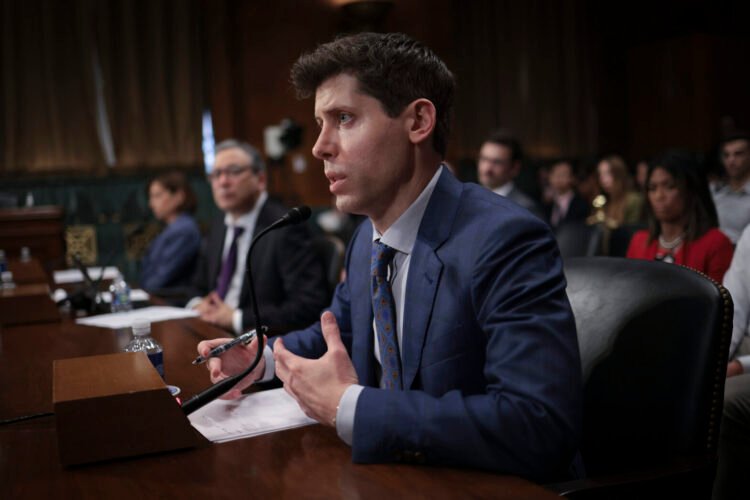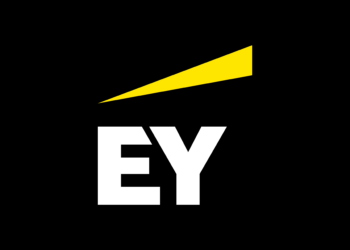OpenAI is a nonprofit research organization that aims to create artificial intelligence (AI) that can benefit humanity without being constrained by profit or power. Founded in 2015 by a group of prominent tech entrepreneurs and investors, OpenAI has been at the forefront of advancing the state of the art in AI research and deployment.
In this article, we will explore how Altman transformed OpenAI into a leading AI research organization, and what his legacy means for the future of AI.
From Y Combinator to OpenAI
Sam Altman was already a successful entrepreneur and investor before joining OpenAI. He co-founded Loopt, a location-based social networking app, in 2005, and sold it for $43.4 million in 20121. He then became a partner at Y Combinator, a prestigious startup accelerator, in 2011, and was named its president in 20141. Under his leadership, Y Combinator funded and mentored thousands of startups, including Airbnb, Dropbox, Stripe, and Reddit1.
Altman was also one of the original founders of OpenAI, along with Elon Musk, Peter Thiel, Jessica Livingston, and others. He was initially a part-time board member, but in March 2019, he announced that he would leave Y Combinator to focus full-time on OpenAI as CEO.
He said that he wanted to dedicate his life to creating “beneficial AGI” (artificial general intelligence), which is AI that can perform any intellectual task that humans can. He also said that he believed that OpenAI had the potential to be “the most important project in the history of humanity”.
***
Scaling Up OpenAI’s Vision and Mission
As CEO, Altman had a clear vision and mission for OpenAI: to create and ensure the safe and responsible use of AGI for the common good of humanity. To achieve this, he scaled up OpenAI’s structure, team, and capital base, while maintaining its nonprofit ethos and values.
One of the first things he did was to create OpenAI LP, a hybrid entity that combines the nonprofit parent company with a for-profit subsidiary. This allowed OpenAI to raise more funds from investors while ensuring that its research and technology would remain aligned with its mission and not be influenced by shareholders.
In July 2019, Altman announced that OpenAI had secured a $1 billion investment from Microsoft, which also became its exclusive cloud provider. This gave OpenAI access to more computational resources and talent, as well as a strategic partner for developing and deploying its AI products and services.
Altman also expanded OpenAI’s research and product portfolio, covering a wide range of domains and applications.
Some of the notable projects that OpenAI launched or released under his tenure include:
GPT-2 and GPT-3
These are large-scale language models that can generate coherent and diverse text on almost any topic, based on a given prompt. GPT-2 was released in February 2019, and GPT-3 in May 20202. Both models caused a sensation in the AI community and beyond, demonstrating the power and potential of deep learning and natural language processing.
GPT-3, in particular, was hailed as the most advanced language model ever created, with 175 billion parameters and the ability to perform various natural language tasks, such as answering questions, writing essays, and generating code.
DALL·E
This is a generative model that can create images from text descriptions, such as “a pentagon made of cheese” or “a snail made of a harp”. DALL·E was introduced in January 2021, and showcased the impressive creativity and versatility of AI. DALL·E also demonstrated the potential of combining vision and language, two of the most important modalities for human intelligence.
Codex
This is a system that can generate and execute code from natural language commands, such as “create a web app that shows the current weather” or “sort a list of numbers in ascending order”. Codex was unveiled in August 2021, and was based on GPT-3, but fine-tuned on a large corpus of source code.
Codex was also the basis for OpenAI Codex, a commercial API that allows developers to access and use the system for various programming tasks.
OpenAI Scholars
This is a program that supports individuals from underrepresented groups to pursue research careers in AI2. The program provides scholars with funding, mentorship, and access to OpenAI’s resources and network2. The program was launched in April 2018, and has since supported dozens of scholars to conduct original and impactful research on topics such as fairness, bias, and social good.
Leaving a Lasting Legacy
In November 2021, OpenAI announced that Altman had stepped down as CEO, and that Mira Murati, the former CTO, had taken over as interim CEO. The reason for Altman’s departure was not disclosed, but some sources suggested that it was due to disagreements with the board and other executives over the direction and strategy of the organization.
Altman said that he was proud of what he and the team had accomplished and that he would remain involved with OpenAI as a board member and advisor.
Altman’s legacy as the CEO of OpenAI is undeniable. He transformed the organization from a small and ambitious startup to a large and influential powerhouse in the AI field. He raised billions of dollars in funding, hired hundreds of talented researchers and engineers, and launched groundbreaking products and services that showcased the capabilities and possibilities of AI.
He also stayed true to OpenAI’s mission and values, ensuring that its research and technology would be aligned with the common good of humanity, and not be monopolized by a few entities or individuals.
Altman’s vision and leadership have inspired and influenced many people in the AI community and beyond. He has shown that AI can be a force for good and that creating beneficial AGI is not only possible, but also desirable.
He has also challenged and provoked the status quo, and encouraged others to think big and bold about the future of AI and humanity. As he once said, “The most important thing we can do is to create a world where everyone has a sense of purpose and agency. That’s what I want to do with my life, and that’s what I want to do with OpenAI.”

Sam Altman’s Transformative Leadership at OpenAI: Driving Innovation and Growth
Sam Altman’s leadership played a pivotal role in the transformation of OpenAI into a leading AI research organization.
Here are some key aspects of his contribution:
- Fundraising and Investment
Altman’s strong connections in Silicon Valley facilitated securing large investments for OpenAI from prominent benefactors like Elon Musk and Reid Hoffman. This enabled OpenAI to attract top AI researchers and invest in powerful computing resources.
- Recruitment and Team Building
Altman focused on building a world-class team of researchers and engineers by actively recruiting top AI talent. This led to the development of innovative AI models and tools like GPT-3 and DALL-E, propelling OpenAI’s reputation.
- Strategic Partnerships
Altman established major partnerships with companies like Microsoft and Google, opening access to advanced platforms and expanding research capabilities. This collaboration helped accelerate OpenAI’s research and development efforts.
- Prioritizing Deep Learning Research
Under Altman’s leadership, OpenAI put considerable focus on Natural Language Processing (NLP) and Deep Learning, leading to the creation of cutting-edge NLP models like GPT-3. This sharpened OpenAI’s research direction and contributed to its recognition for NLP expertise.
- Openness and Collaboration
Altman promoted a culture of open-source collaboration within OpenAI, encouraging researchers to share research findings and collaborate with others in the field. This open-source approach significantly boosted OpenAI’s contributions to the broader AI research community.
- Commercialization and Sustainability
Altman recognized the importance of financial sustainability for OpenAI’s long-term success. He oversaw the development of commercial products like the OpenAI API, generating revenue to support research and development.
- Commitment to Responsible AI Development
Altman consistently emphasized the importance of developing AI responsibly and mitigating potential risks. OpenAI established a research team dedicated to AI safety and ethics, ensuring responsible development and deployment of AI technologies.
Criticism
However, Altman’s leadership also attracted some criticism:
Shifting Priorities
Some former OpenAI employees criticized Altman’s focus on commercialization and large language model development, claiming it shifted priority away from broader research areas.
Partnership with Microsoft
Concerns were raised about OpenAI’s exclusive partnership with Microsoft, which some saw as a potential conflict of interest and a threat to Openness.
Despite these criticisms, it’s undeniable that Sam Altman’s leadership played a significant role in transforming OpenAI from a small non-profit into a major force in AI research. He secured crucial resources, attracted top talent, established strategic partnerships, and steered OpenAI toward groundbreaking research and commercialization, cementing its status as a leading AI research organization.
(India CSR)
Also Read: Mira Murati Takes The Helm As Interim CEO Of OpenAI





















